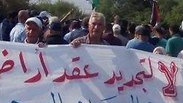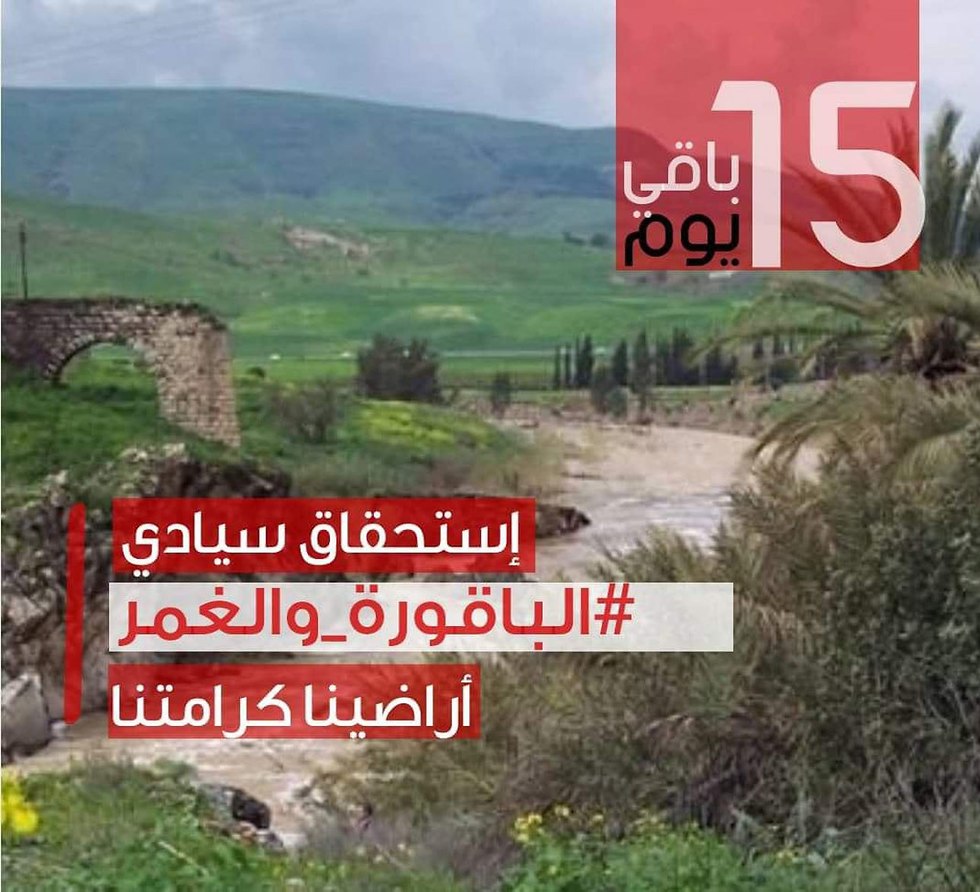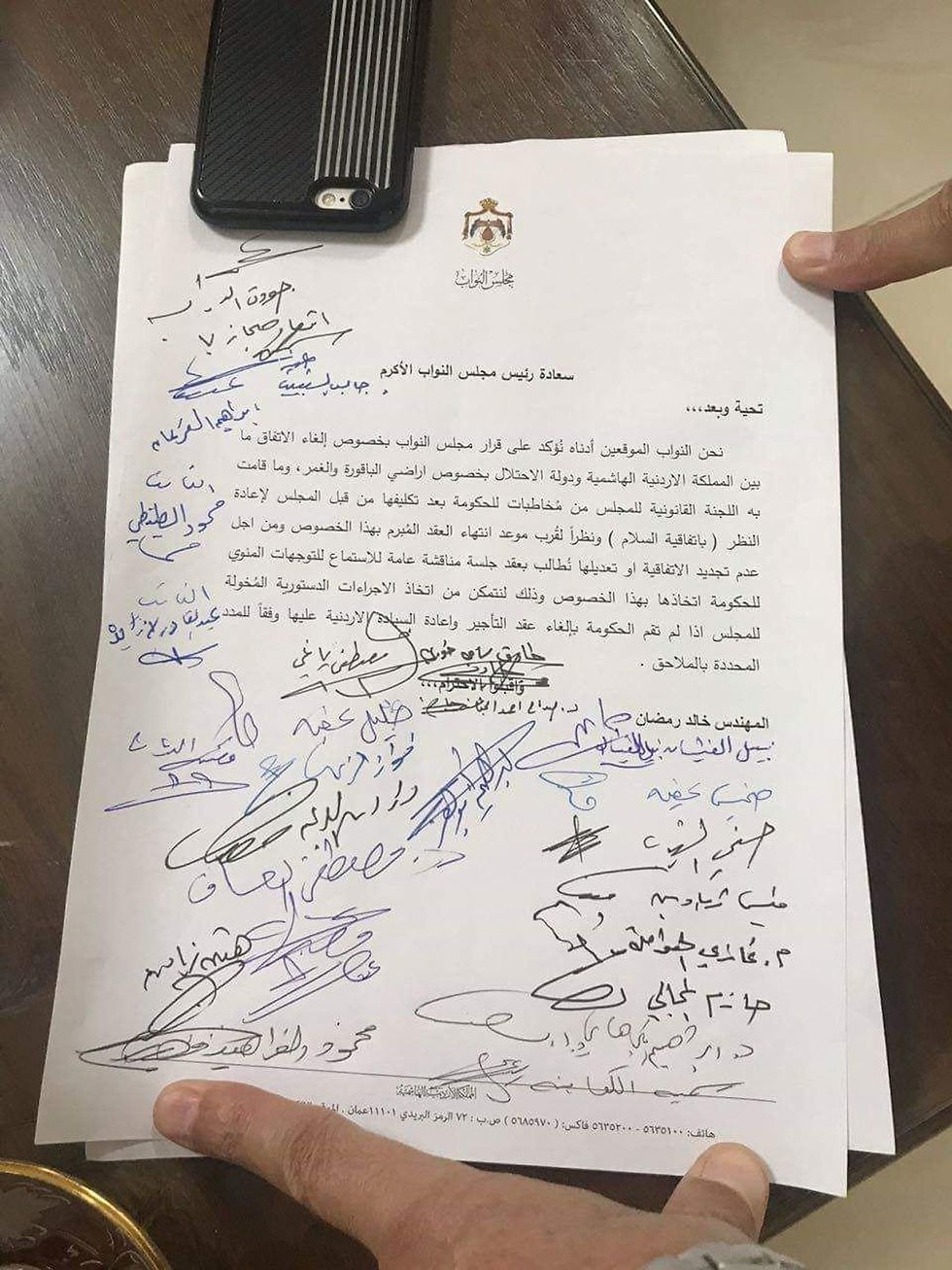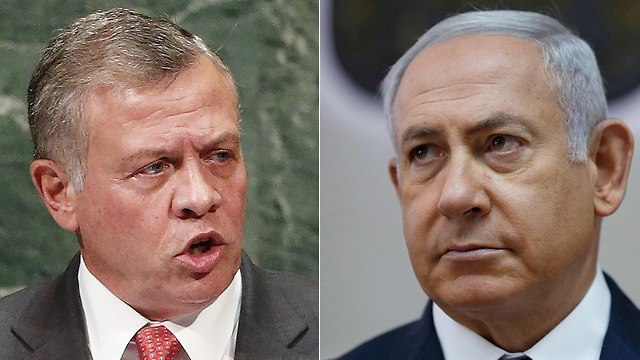

Jordanians pressure King Abdullah to return lands to owners
Protesters in Jordan call on their government to return the territories that had been leased to Israel under the 1994 peace treaty; campaign featuring a countdown to the final day of decision spreads online; 80 MP's support King Abdullah's decision; A Jordanian citizen: ‘people here are really happy about this'; local farmer: 'we will have no choice but to leave.'
"We are practicing our full sovereignty on our land," Abdullah said. "Our priority in these regional circumstances is to protect our interests and do whatever is required for Jordan and the Jordanians."
Jordan’s announcement came in light of mass demonstrations and social media campaigns in support of the peace treaty’s cancellation. A campaign featuring a countdown to the final day of decision regarding the lease was widely spread online.
The Jordan Bar Association sent an official letter to Jordanian Prime Minister Omar al-Razzaz, urging him not to extend the Israeli lease of the lands. The Bar Association's recommendation received the support of 80 out of 130 Jordanian members of parliament.
However, some voices on social media expressed a more critical opinion of their government’s position.
"How is it possible that the area under Israeli control is so green, while only a few meters away the Jordanian lands are arid and desolate?" one user wondered.
“The two annexes to the peace treaty were a mistake to begin with,” said Jordanian Parliament member Omar al-Qarakish said on Sunday. “Now we are amending that. Israel didn’t allow Jordanians to drink from the waters of these lands—and now the original owners will have all the rights.”
A Jordanian citizen told Ynet today that, “people here are really happy about this decision. Even though parliament members and activists were working on it, it still came as a surprise”.
“It’s too early to say whether Jordan will indeed get those lands back. It's a part of the treaty and it needs to be discussed,” she added.
The appendices to the peace agreement concern mainly the lease of the Island of Peace in Naharayim and the Tzofar enclave in the Arava, leased by Israel since the signing of the peace treaty between the two countries nearly 25 years ago.
The terms of the agreement state that 25 years after the initial signing, each party will be able to discontinue the lease of the land on one condition—it should be done one year in advance, and this Sunday marks 24 years since the treaty had been agreed upon.
Israeli farmers have cultivated the land for many years, but following Jordan’s announcement Israel will be forced to return the land in question within a year, unless the appendices could be renegotiated.
The decision has reportedly come as a surprise to the officials in Jerusalem, as it would downgrade the peace treaty.
Ynet commentator Ron Ben-Yishai estimates that Jordan’s decision is a result of pressure from within, coming from the Muslim Brotherhood movement.
According to Ben-Yishai, It could also be an attempt to pressure Israel, in order to promote Jordanian financial demands regarding gas prices and water and quantities. Demands in the Palestinian context are also an option.
Other farmers from the region who rely on these lands say that there aren’t enough good lands in the Arava to replace the leased lands. “We will have no choice but to leave”, said a local farmer.


















